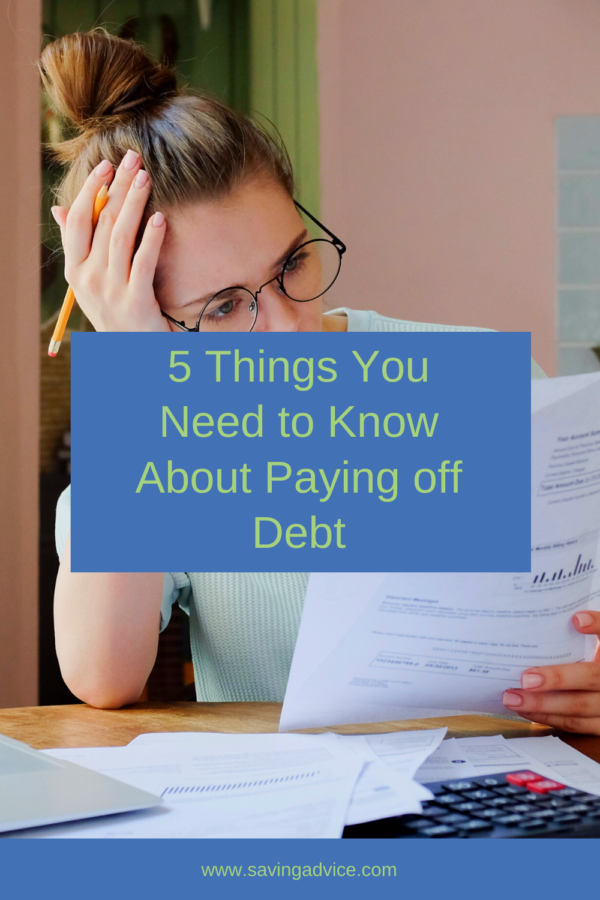
Many people believe that paying off debt is always a good thing. While it is true more often than not, there can be some surprising implications if you handle those financial obligations, particularly if you pay them off early. If you are working your way toward being debt-free, or are considering getting on that path, here are five things you need to know about paying off debt.
1. Your Credit Score May Drop When Paying Off Debt
While it seems counterintuitive that paying off debt could hurt your credit score, it is possible. Usually, there’s only a negative impact if eliminating the debt also comes with closing the account. When an account is removed, it alters a few aspects of your credit report, and not always in a good way.
For example, closing an account changes the average age of your open accounts. If that average falls significantly, your score could dip. Getting rid of debt could shift your credit mix, leading to a score change. Additionally, if you close a credit card and have another one open that has a balance, your credit utilization may go up, causing your score to fall.
Now, the credit score dip usually goes away with time, especially if you continue to make smart financial choices. However, it’s important to know that it can happen, so that you aren’t surprised if your score falls as you make positive progress on your debts.
2. You Could Get Hit with a Fee
While most loans don’t have early repayment (or prepayment) penalties, some do. That means, if you pay off that debt ahead of schedule, you may owe a fee. That penalty is solely for the lender’s benefit, allowing them to essentially recoup some of the interest you aren’t paying because you paid off the debt early.
Before you pay off any debt, find out if there’s a prepayment penalty. If so, do some math to figure out which is more, paying the loan on time (and dealing with the interest) or the fee. That way, you can make the right move.
3. You Should Create an Emergency Fund First
Paying off debt means you’ll have more room in your budget usually. However, if you don’t have cash set aside for an emergency, should the unthinkable occur, you might have to turn to debt to handle the situation. That can essentially put you back at square one, which may be incredibly frustrating.
Ideally, you want to have some money set aside for emergencies before you focus on paying more than the minimum on your debt. It gives you a financial cushion, and that’s important for your financial well-being.
4. You May Want to Invest Instead
It’s true that being debt-free can give you a lot of peace of mind, but that doesn’t mean it’s always the smartest financial move. If you’re dealing with low-interest debts, taking any money you were planning to send as extra payments and investing it instead may actually be the better financial choice.
Securing a return that’s higher than the interest rate you’re paying lets you come out ahead. As a result, it can be smart to think twice before working to conquer a low-interest debt ahead of schedule.
5. Some Debt Repayment Strategies Are Better Than Others
How you approach paying off your debt matters. It impacts how much interest you ultimately pay, so it’s important to choose the right method if you want to come out ahead.
If you focus on your highest interest debt first, you’ll pay less in interest overall. It’s the ideal way for getting the most out of your money and can make your total debt repayment plan shorter.
However, some people need the boost of a quick win. If that’s you, then you may want to start with the lowest balance debt. Just be aware that this approach means you could pay more in interest as you work through the full plan.
Can you think of anything else people should know about paying off debt? Share your thoughts in the comments below.
Read More:
- Paying Off Debt or Investing? Don’t Make These Mistakes
- Should You Use Student Loans to Pay Off Credit Card Debt?
- How to Avoid Growing Credit Card Debt
If you enjoy reading our blog posts and would like to try your hand at blogging, we have good news for you; you can do exactly that on Saving Advice. Just click here to get started.
Tamila McDonald is a U.S. Army veteran with 20 years of service, including five years as a military financial advisor. After retiring from the Army, she spent eight years as an AFCPE-certified personal financial advisor for wounded warriors and their families. Now she writes about personal finance and benefits programs for numerous financial websites.
Comments